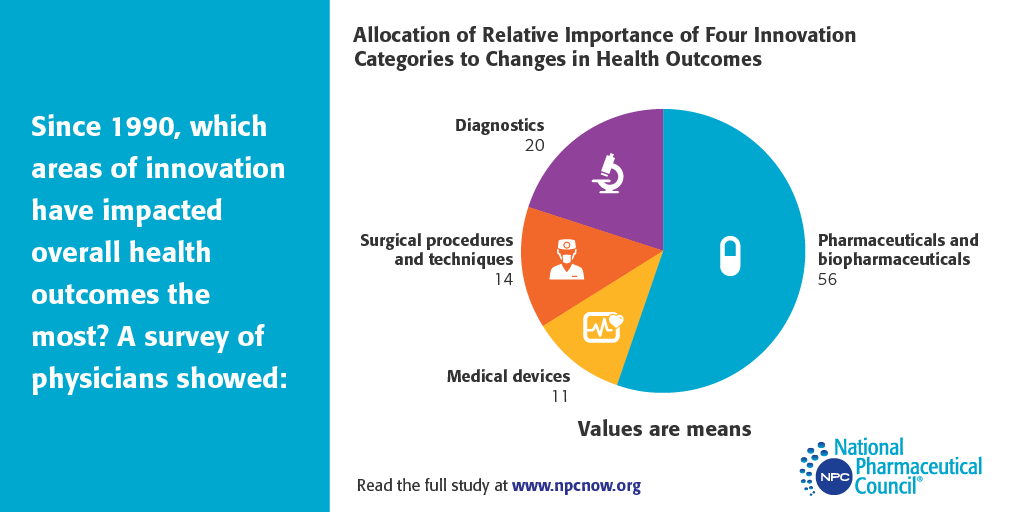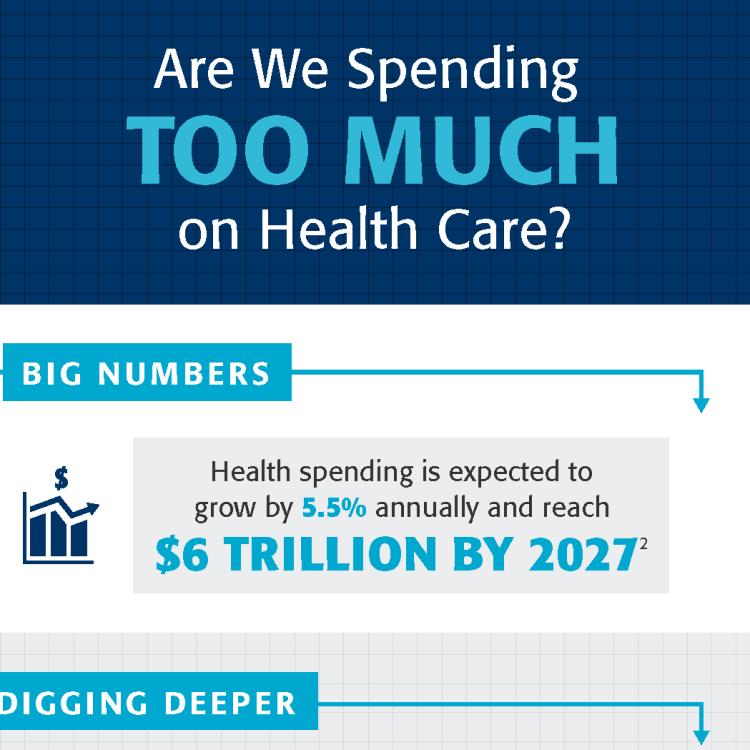Authors: Wamble DE, Ciarametaro M, Dubois R
Publication: Journal of Managed Care & Specialty Pharmacy, June 2018
Advances in medical technology, from devices to medications, have visibly increased life expectancy and quality of life for many patients post-diagnosis. A survey published in the Journal of Managed Care & Specialty Pharmacy of U.S. physicians provides insight on their perceptions regarding which medical innovation has impacted outcomes the most for U.S. patients diagnosed with debilitating health conditions since 1990.
Among the 136 physicians surveyed, the majority (56 percent) of improvements in outcomes were driven by pharmaceutical and biopharmaceutical innovations, with other health care services having less perceived impact: diagnostics (20 percent), surgical procedures and techniques (14 percent) or medical devices (11 percent). To measure changes over time, RTI utilized national-level statistics from the Centers for Disease Control and Prevention and World Health Organization Global Burden of Disease databases to identify the top chronic conditions in the United States from 1990 through 2014, the most current year available at the time of the study. The top eight conditions were breast cancer, ischemic heart disease, HIV infection, diabetes, unipolar depression, chronic obstructive pulmonary disease, cerebrovascular disease and lung cancer.
The survey provides an important perspective in the ongoing debate over the value of medical technology innovation, and illustrates that physician-perceived benefits provided by pharmaceutical and biopharmaceutical innovations are substantial when compared to other post-diagnosis innovations, excluding public health interventions.



